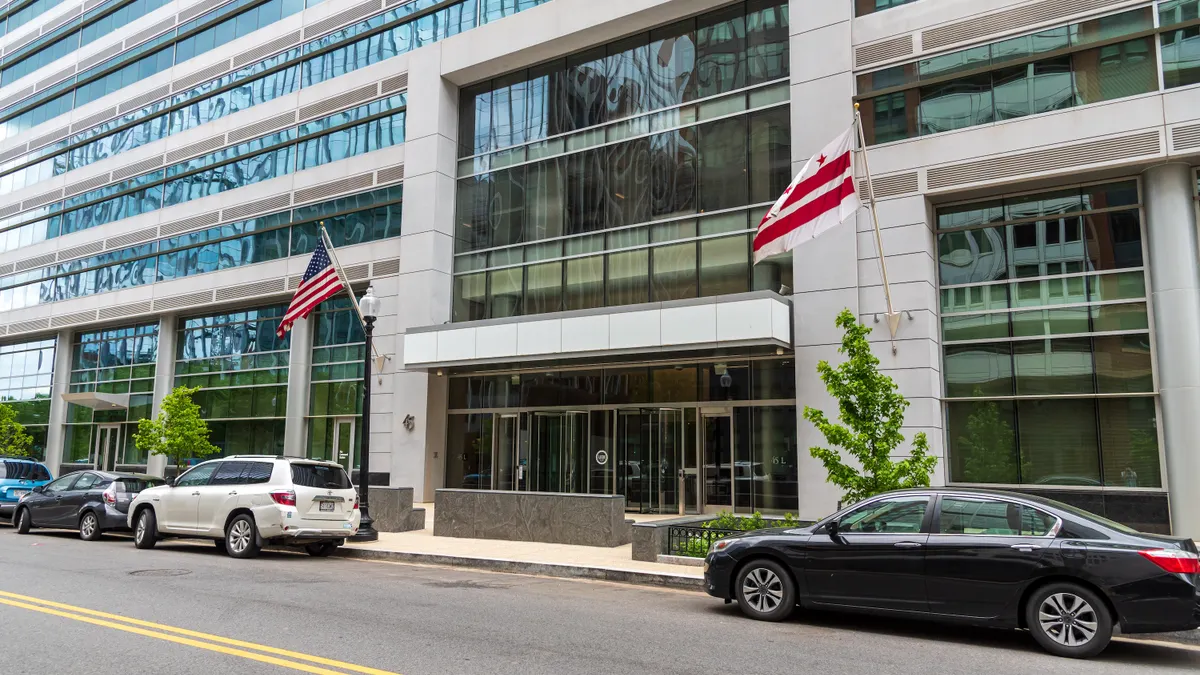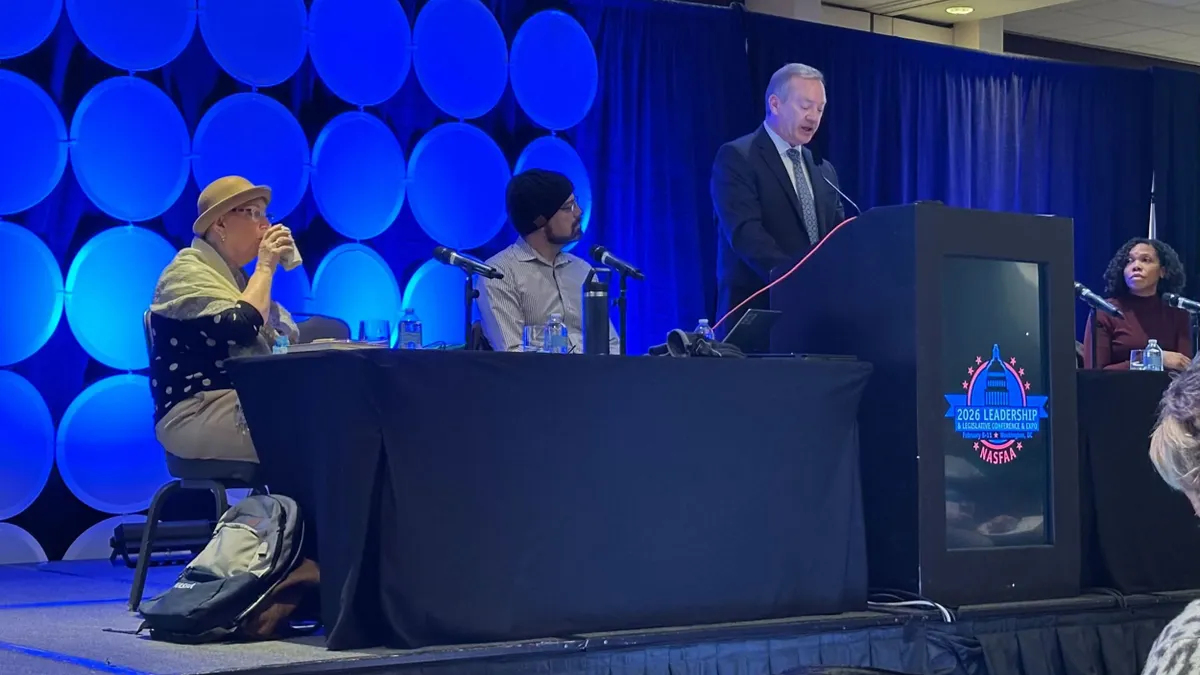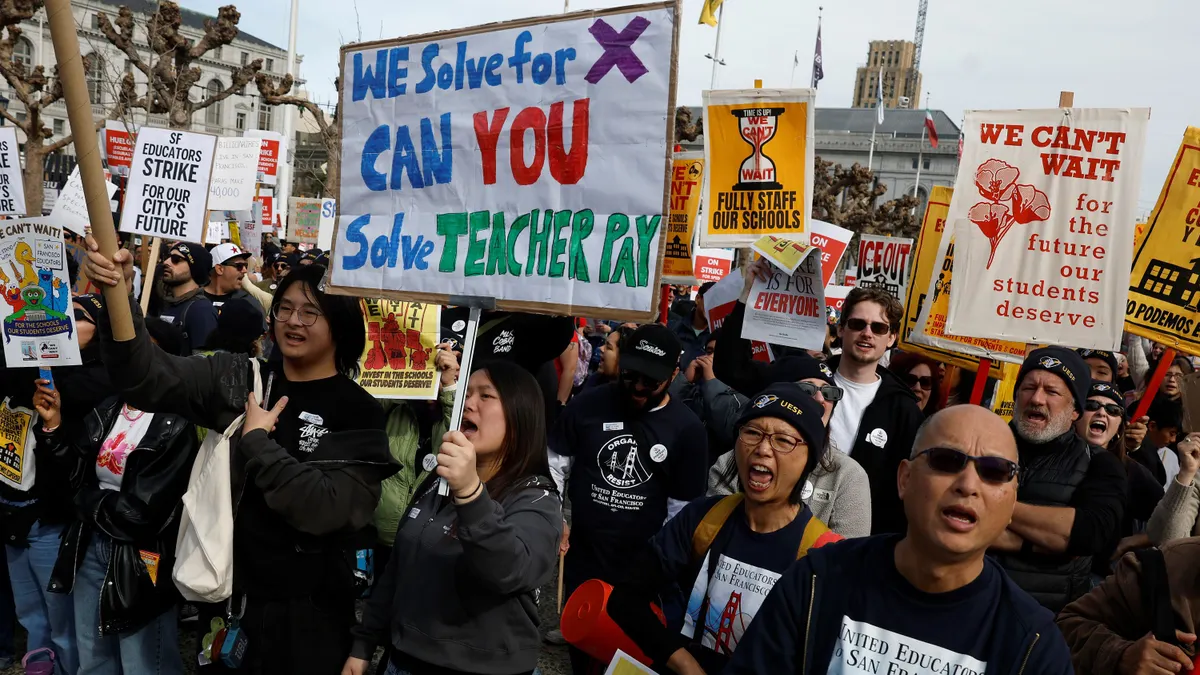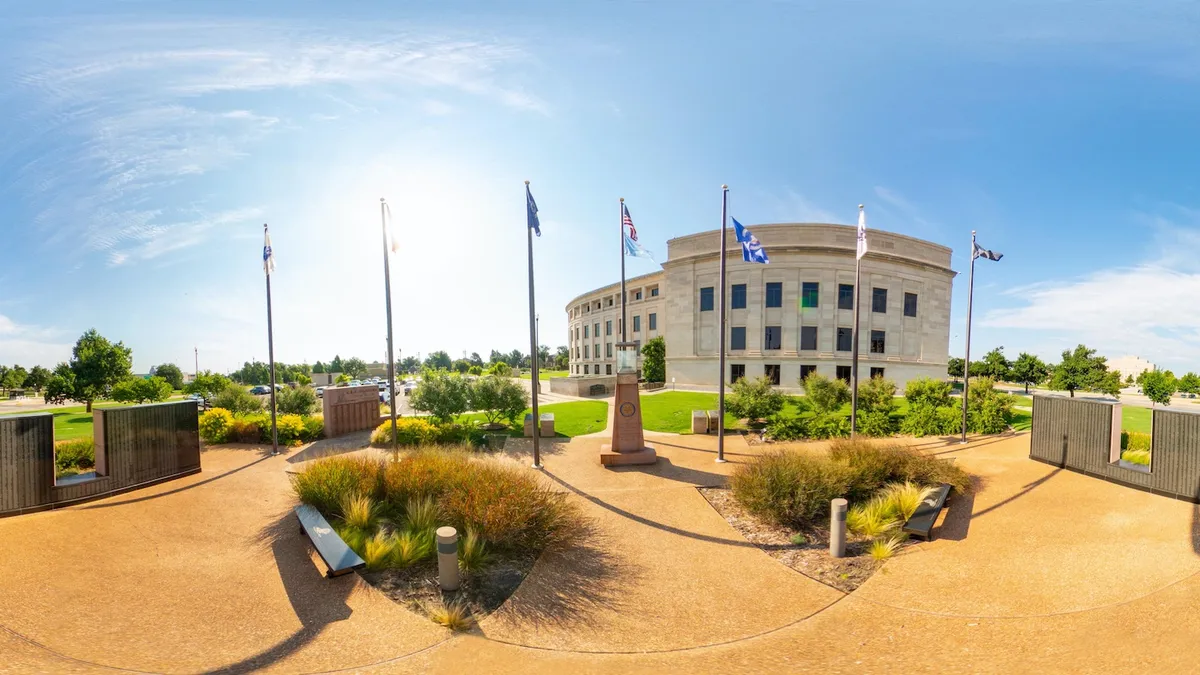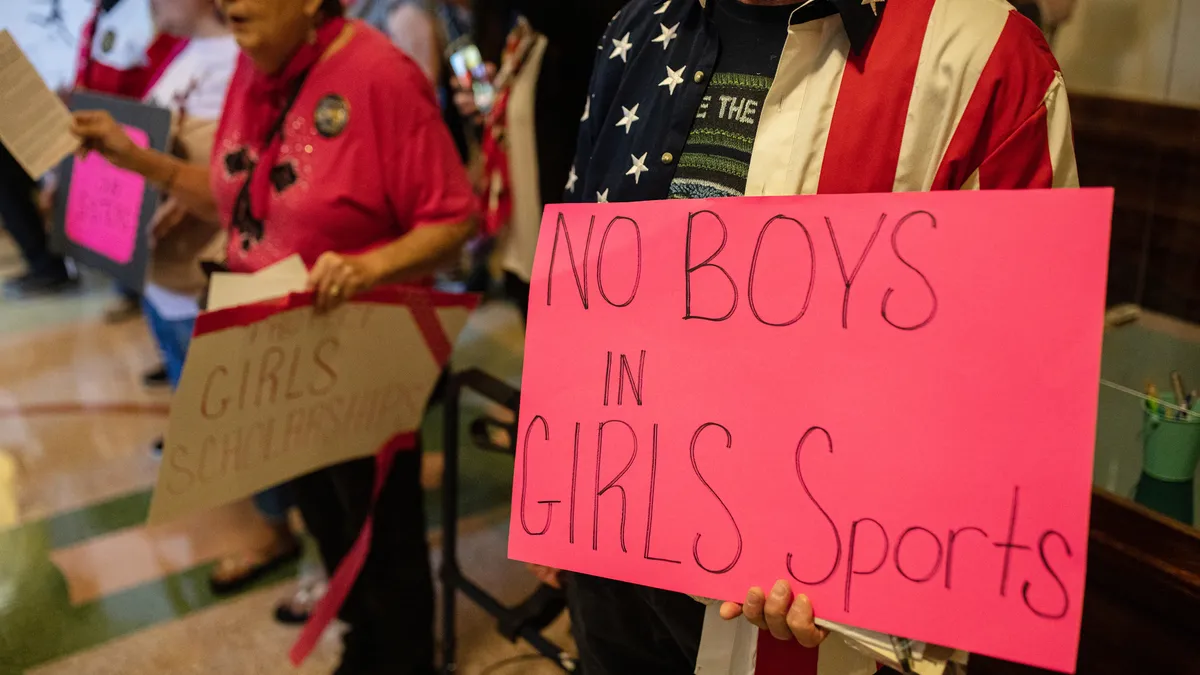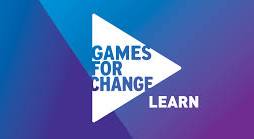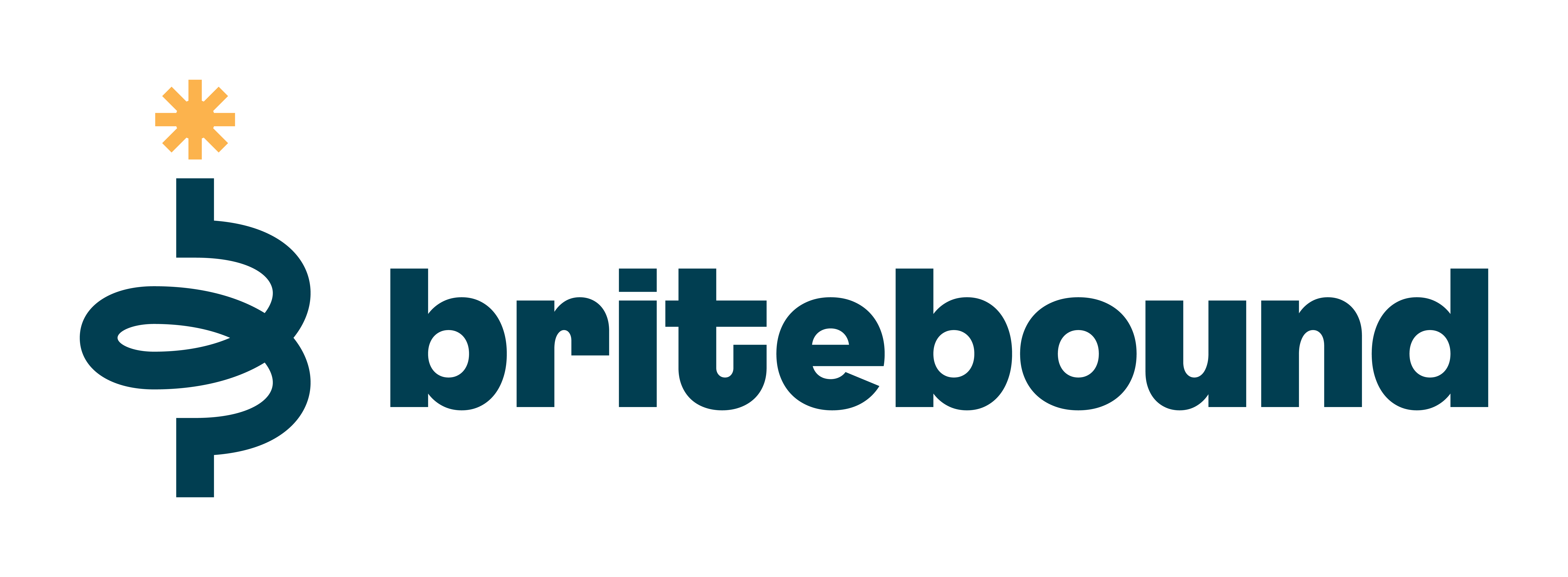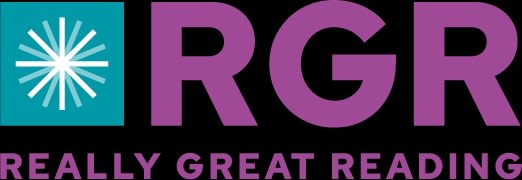The U.S. Supreme Court preserved E-rate's funding mechanism in a 6-3 opinion released Friday. The decision — which could have upended the multibillion-dollar federal internet discount program for schools and libraries had it gone the other way — means schools can continue to apply for the program's funding.
The ruling in FCC v. Consumers' Research keeps in place the Universal Service Administrative Co., the private nonprofit company created by the Federal Communications Commission to administer the program. The justices deemed it constitutional for the company to continue assisting in “projecting revenues and expenses, so that carriers pay the needed amount.”
The high court decided that Congress and FCC's decision to tap the private company to administer the program does not violate the nondelegation doctrine, which is traditionally used to ensure that Congress does not pass its legislative powers to other entities.
"For nearly three decades, the work of Congress and the Commission in establishing universal-service programs has led to a more fully connected country," wrote Justice Elena Kagan in the court's majority opinion. "And it has done so while leaving fully intact the separation of powers integral to our Constitution."
Even though USAC administers the program, the FCC "has retained all decision-making authority within that sphere, relying on the Administrative Company only for non-binding advice," wrote Kagan.
Dissenting Justices Neil Gorsuch, Samuel Alito and Clarence Thomas, however, opposed the program's setup — calling it a "classic tax-and-spend scheme, not a fee," which they say the USAC should not have power to administer.
"Within the federal government, Congress 'alone has access to the pockets of the people,'" wrote Gorsuch in his dissenting opinion, which Alito and Thomas joined.
Following the enactment of the Telecommunications Act of 1996, Congress and the FCC gave power to the Universal Service Administrative Co. to disburse the Universal Service Fund, which disburses funding for E-rate. FCC v. Consumers' Research rose to the Supreme Court after the 5th Circuit U.S. Court of Appeals ruled in July 2024 against the USF and USAC.
However, in oral arguments in March, Sarah Harris, the U.S. Department of Justice’s acting solicitor general, said rather than delegating power to private companies like USAC, the FCC solicits and relies on them to provide “private advice.”
On the other hand, Consumers’ Research, a conservative nonprofit organization that aims to challenge “woke” companies, argued that “this case is about taxation without representation.” It said USAC’s funding mechanism taxes citizens in the form of a “Universal Service Fee” on their telecommunication services bills — which it doesn’t have the power to do.
All parties and the justices during the arguments acknowledged that the Universal Service Fund is a widely used program that schools, children and libraries depend on.
In 2022-24, more than 106,000 schools received E-rate funding, impacting more than 54 million students, according to the FCC. An overwhelming majority — 94% — of 2,355 surveyed E-rate applicants considered the program’s funding “vital” to schools’ and libraries’ internet access in 2024, per a report by Funds For Learning, a firm that consults with schools and libraries on E-rate.
A win for public schools
Public school advocates celebrated the Supreme Court's decision, saying that it would uphold a much-needed and popular service commonly used by low-income schools and students.
The National Education Association called it "a win for students and educators everywhere," as it makes access to online learning — which has become especially popular since the COVID-19 pandemic — more accessible in schools and at home.
That celebratory sentiment was echoed throughout the public education community.
"The Court’s decision provides much-needed certainty and stability for schools, libraries, and the students and patrons they serve," said the Education and Libraries Networks Coalition in a Friday statement. "At a time when robust internet access is more essential than ever for teaching, learning, and workforce development, the Court has safeguarded a lifeline that communities across the country depend on."
Conservative leaders and organizations, however, lamented the decision as a "missed opportunity" to lower American taxpayers’ phone bills and restore Congress' taxing power — which they said is slighted as a result of the case.
"Though we can hope for another case and another opportunity, Congress possesses the means—if not the will—to fix the problem now without the courts," said Jack Fitzhenry, a legal fellow at The Heritage Foundation, a conservative research and educational institution.


